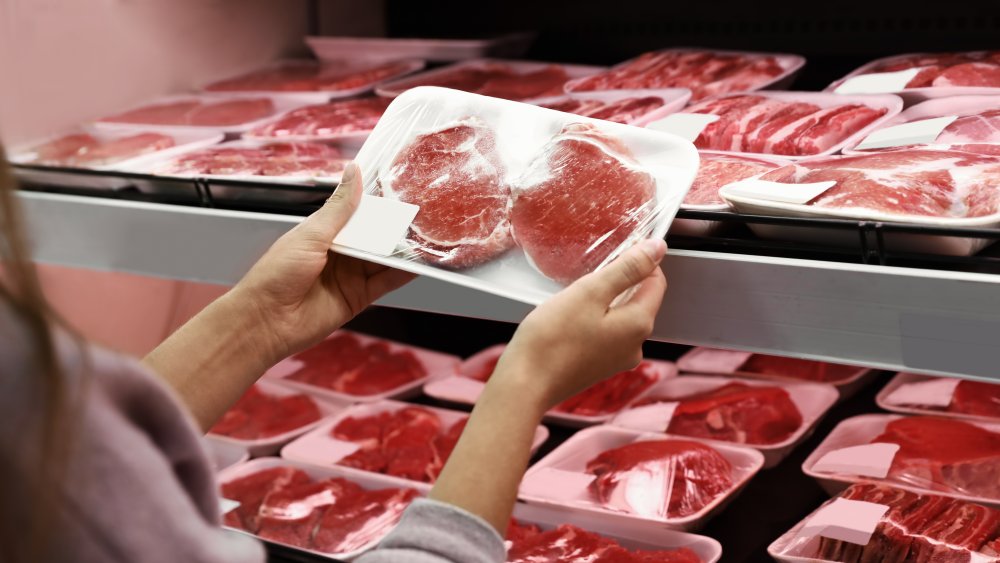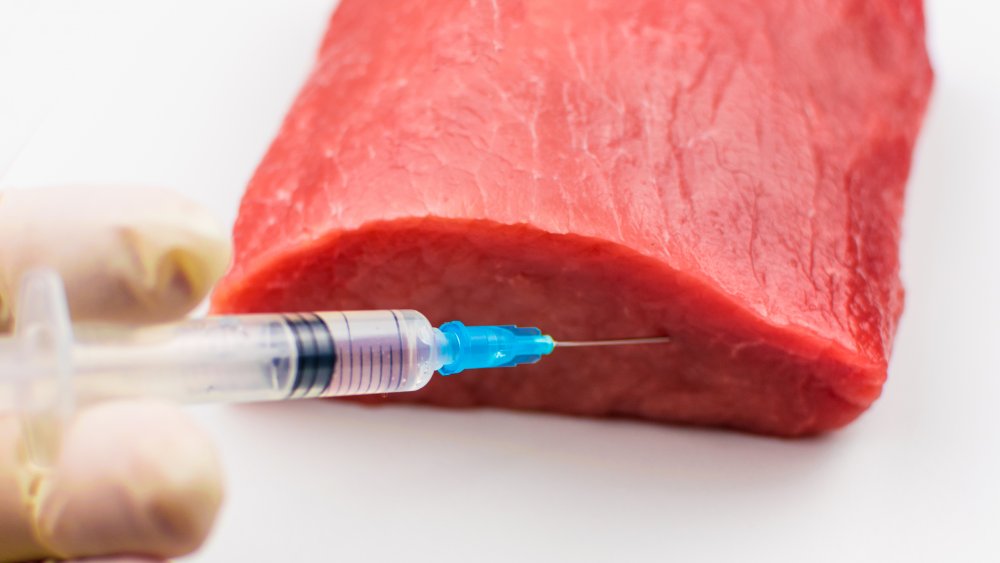The Most Important Thing To Look For When Buying Meat
In the course of a single year, Americans eat a lot of meat. In 2017, they ate approximately 9 billion chickens, 32.2 million cattle and calves, and 121 hogs (via the North American Meat Institute). But what's the proper method we should use in selecting and purchasing meat that is packaged or in the display case? It can be a tricky process for those of us who are less seasoned. The good news is that it really isn't that difficult once you know what you are looking for. The Food Network suggests that you start by using your senses to ensure the product feels firm when you touch it, that it doesn't stink when you take a whiff, and that it doesn't have packaging damage or too much liquid when you eyeball it.
All of these tips are important to follow in your effort to choose a good piece of meat to take home and cook for your family, but before you begin checking off your grocery list, per Mother Earth News, one of the most important things to look for when buying and selecting meat is whether or not it has been enhanced. What does this mean? "Enhanced" – also referred to as "plumped" – meats have been injected with a salt-water solution. This solution goes into the poultry, beef, and pork that line grocery store shelves in an effort to keep them moist and better-tasting.
You are paying for water weight
Per Premier Food Group, this process of "enhancing" your meat was implemented in an effort to replace the flavor that's lost as the meat industry strives to remove fat to produce leaner meat. This salt and water liquid solution that is injected into the meat can comprise 15 percent or more of your chicken's weight. Translation: you're paying for water weight. Not to mention that a single enhanced breast of chicken could eat up 60 percent of your daily sodium intake limit. But injecting liquids into meat is not limited to chicken and other poultry. Beef and pork processors have also jumped on the bandwagon, labeling the solution used to plump up their product as "broth."
Why should you care? As Mother Earth News points out, this process is lining the pocketbooks of many in the agriculture industry while you are getting less meat for your dollar, not to mention the link between salt intake and high blood pressure. Moreover, the injections can enhance your risk of E. coli. exposure by forcing bacteria to the surface of the meat. Bottom line: Be mindful of the ingredients labels and consider steering clear of meat that contains these "natural broths."

